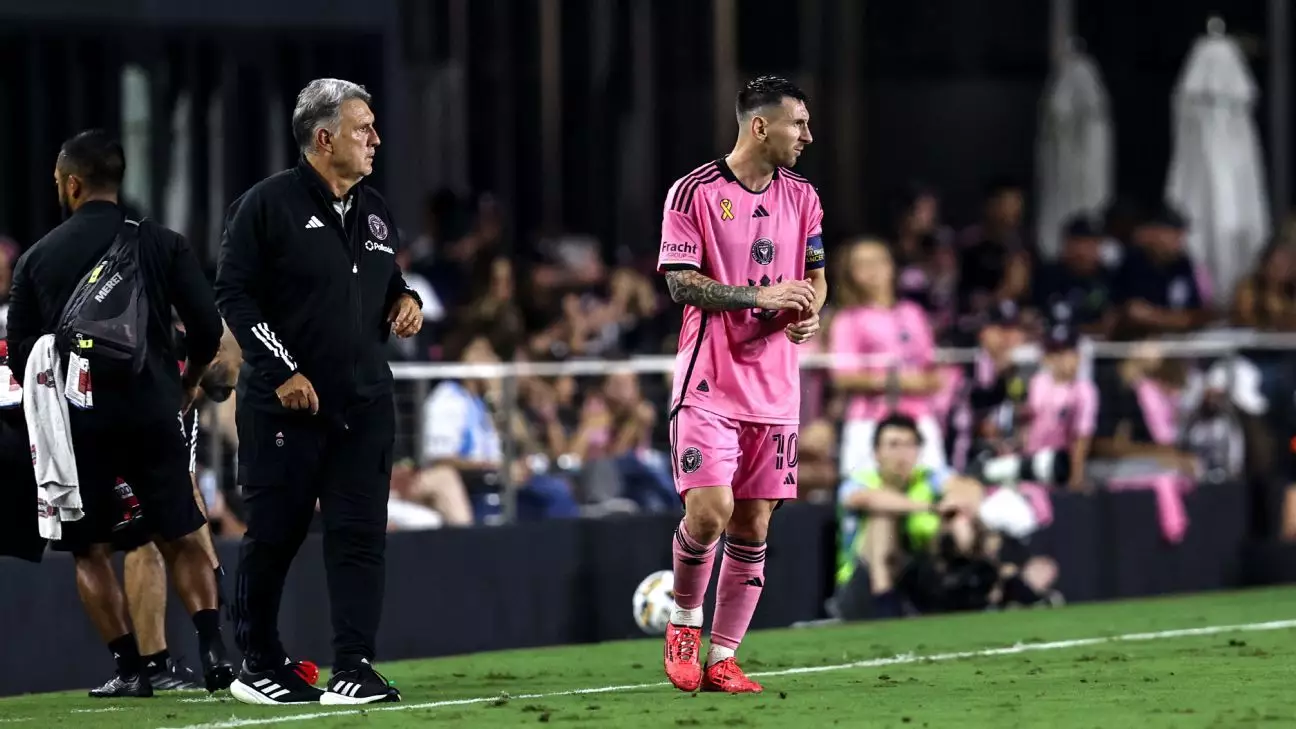The world of professional soccer is fraught with the emotional ebbs and flows of its most beloved figures. One such pivotal moment in Major League Soccer’s landscape is the recent departure of Gerardo “Tata” Martino from his role as head coach of Inter Miami CF. Sources confirmed this news to ESPN, citing personal reasons behind his decision to leave the club despite having a year remaining on his contract. As the soccer community grapples with this development, it’s essential to reflect on what Martino’s tenure meant for Inter Miami and to consider what lies ahead for the franchise.
Martino’s management has been a cocktail of highs and lows. He joined Inter Miami in June 2023, taking over from Phil Neville, and in that short timeframe, he was at the helm during an era marked by ambitious player signings, including the legendary Lionel Messi. Martino’s leadership guided the team to impressive milestones such as winning the 2023 Leagues Cup and the 2024 Supporters’ Shield. Under his stewardship, Inter Miami not only clinched the trophy but also revolutionized the way the league viewed season performances, as the team amassed 74 points – a record that eclipsed the previous high set by New England in 2021.
However, these accomplishments were shadowed by some disappointing results. The team struggled in the Concacaf Champions Cup, suffering an exit in the quarterfinals against Monterrey. Similarly, their performance in the 2024 Leagues Cup fell short during the round of 16. This dichotomy between regular-season success and playoff disappointment reflects the difficulties of maintaining consistency in high-stakes tournaments.
A significant part of Martino’s narrative involved the Argentine superstar, Lionel Messi. Messi’s presence in the squad elevated the expectations surrounding Inter Miami, and while injuries and national duties limited his participation in the season, Martino managed to steer the team to historic heights. It raises questions about whether the presence of marquee players like Messi creates a double-edged sword, where heightened expectations can lead to greater scrutiny, particularly when the outcomes do not align with public anticipation.
The statistics tell part of the story: with a .765 winning percentage, Inter Miami highlighted the potential of a club that could dominate the regular season. Yet, the inability to translate that success to postseason play leaves an aura of unfulfilled promise. The pressures of balancing star power with team development are an ongoing challenge for any club, and it’s one that has been especially visible en the landscape of American soccer.
Looking forward, the future of Inter Miami CF appears to be both exciting and uncertain. With a new head coach on the horizon, the team will need to navigate not just a packed schedule filled with a 34-match MLS slate but also new international challenges, including the Club World Cup commencing in June. This necessitates a careful orchestration of talent and strategy to maintain the club’s upward trajectory.
The transition period will be critical. New leadership can either uplift the team or lead it astray, especially when expectations remain sky-high. The next coach will need to build synergy among the existing talents while also possibly integrating new players who can fit into Martino’s established framework. It’s not just about replicating past successes but finding ways to improve upon them, and that requires both vision and execution.
Gerardo Martino’s exit marks the end of a transformative period for Inter Miami CF. Though his tenure was colored with remarkable highs, it was also marred by significant challenges. As he prepares to address the media for the final time alongside co-owner Jorge Mas and president of football operations Raúl Sanllehi, his legacy will undoubtedly provoke mixed feelings among fans and analysts.
The soccer world continues to watch closely as Inter Miami embarks on this new chapter. With aspirations of consistently competing at the highest levels, the organization must now adapt and evolve to forge a path forward. The departure of Martino could similarly serve as a reminder that in the sport—filled with both triumph and tribulation—every ending can lead to exciting new beginnings.

Leave a Reply